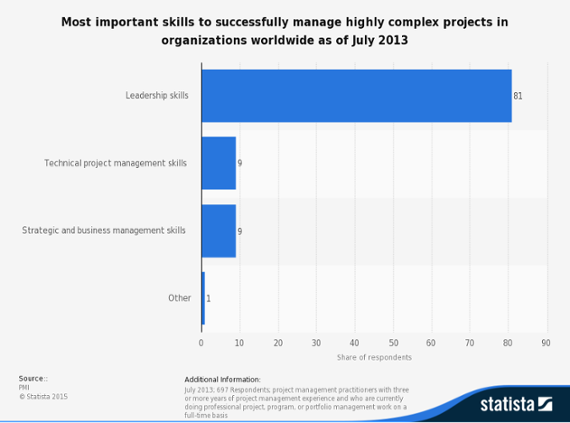So, you are the CEO of your own company. Congratulations, you made it! That‘s it, right? Enjoy the cake and champagne, and gift bags for everyone! After the celebratory horns and whistles, go ahead and pat yourself on the back, and then take a restful snooze on your office couch.
Sadly, that is not the case. This is not Hollywood; this is the real world.
While being a CEO grants you a sense of achievement, and rightfully so, it also charges you with a never-ending task: growth. If your business is not growing then it is practically dying, on its deathbed, with flowers, wreaths, and friends and family in mourning.
As the owner of a business, it is necessary to control every aspect of your company, whether directly or indirectly, in an effort to increase your customer base. Your competitors are working to grow their companies, so how can you outpace the other guys? Let us take a few minutes and go over the five skills a CEO requires to speed up the growth of the company.
Adaptability
At the forefront, adaptability is the greatest skill to harness in order to proliferate the customers of your product. Market trends change with the frequency of a child‘s food and toy preferences. As the CEO of your company, it is up to you to ensure that you are flexible enough to keep up with market shifts and consumer preferences.
Out of 412 global executives surveyed by Development Dimensions International, 32% believe that the ability to facilitate change is the top factor (out of 11 other polling options) in growing their business, ahead of developing talent, creativity, and innovation. The adaptability of a company comes from the top down. As the CEO, you need to make sure that your staff is open, even excited, to change course at a moment‘s notice to suit customer demands.
Whether your company is serving a local market or has an international customer base, cultural adaptability is a key component of growing your business. Culture is in a perpetual state of change, and the ability for your company to adapt to changes is the greatest asset you can possess to facilitate your company‘s growth in the vertical marketplace.
Leaving your comfort zone to gain new business is invaluable for leaders. Familiarity with a market requires constant adaptation. Say, for example, you own a sneaker manufacturing company. If you are in the business of making sneakers with laces, and you‘ve been successful in doing so, what if velcro sneakers become the new trend?
You would then need to adapt to the new shift in the customer‘s preferences and start designing shoes with velcro ties instead of laces. Perhaps you have a personal belief that laced sneakers are more fashionable that velcro-tied ones. Throwing your personal preferences aside is the smarter decision to make in this scenario.
Your customers want what they want. A good leader does not factor in what their own preferences and feelings are when it comes to their strategic decision making. The ability to adapt to the cultural change of your customer base cannot be stressed enough.
To quote Aristotle, “Life requires movement.” Adaptability is moving your business away from where you were and towards where you need to be. What has proven to be a successful business practice yesterday, will not be guaranteed to work tomorrow. To develop your skills in adaptability follow these three steps:
1. Question every decision that you make regarding your company‘s business. Are you making a decision based on your personal feelings? Are you following a routine implementation of the strategy? Also, consider whether you are making decisions based on the past successes of your company or if you are catering to the current marketplace.
2. Make a schedule to regularly evaluate your business strategies and products. Are they catering to the current climate? How will you know? Challenge your staff to review what has been working in the past, and what is going to work in the future.
3. Shed your skin; keep evolving. Being the CEO of a company can be comforting in its title, but comfortability can lead to complacency and stagnation. Being open to reinvention, in fact, welcomes it. Approach new methods for problem-solving. Do not rely upon the status quo forever.
Appreciation
Put yourself in the shoes of one of your employees, say, an account manager. You‘ve just landed a client worth $5 million a year for the company. You report the account and file the contract.
Nothing happens. You hear not a single word of praise from your supervisor.
How motivated are you to land more massive accounts for the company? Not much.
Showing your employees that you value their work is often neglected as a noticeable skill for a CEO. Recognition of a job well done is the fuel for your workers to go above and beyond the minimum standards of job performance. Want your business to grow faster? Get your employees to work better through motivation by giving them praise for great performance.
Recognizing and celebrating employee performance yields amazing results. In a Harvard Medical School study, researchers found a 50% increase in productivity when workers were praised for their performance.
Why is that? The feeling of gratitude increases levels of dopamine, the “reward” neurotransmitter, which motivates a person to repeat an action with enthusiasm. The emotions generated in your workforce by positive recognition of performance create a feedback loop of increased workplace productivity.
However, as a CEO, there is a trap with appreciation that you do not want to fall into: inauthenticity. If you have done a decent job of hiring intelligent and skilled staff, they will be able to tell whether you are sending them praise simply to boost their productivity, or if you genuinely value their work.
Disingenuous praise is counterproductive for your company, as you will be perceived as phony, and who the heck wants to work for a fake? Be honest with your praise, and do not limit it solely to work performance. Find qualities and attributes in your team‘s manners, personality, style, etc. Complimenting your staff on more than just their work performance will make them feel that you truly care about them, which results in higher retention and company loyalty.
Appreciation can also come in the form of a bonus for excellent performance. A 5% bonus is better for your company than a 20% increase in costs from slow performance.
Delegation
According to the Institute for Corporate Productivity, 53% of 332 companies surveyed had a high level of concern for time management amongst their employees, but only 28% offered delegation training. Delegation skills not only enhance your image as the leading authority in your company, but effective delegation skills lead to smoother time management and overall operational performance.
If you want your company to grow faster, which any CEO with half a brain desires, learn to delegate duties in a responsible manner. Do not fall into the trap of the “self-enhancement bias” that myriad other managers and CEOs follow.
Micro-managing has never helped any organization. At first, it may be tough to really let go of the reigns; it may feel that you are losing control of your company. Yet, by delegating duties, given that you have already chosen a team of talented and skilled people, you are actually functioning as a leader in an even greater capacity.
Appropriate delegation frees up more time for yourself and the upper management. The further you delegate low-leverage duties, the more time you have for planning and strategizing with the upper levels of management and development.

Focus
What do Warren Buffett and Bill Gates have in common? Both, besides being insanely wealthy, and have built their fortunes from the ground up, are relentlessly focused on their work, which has allowed them to build their businesses into the empires that they are today.
Focus goes hand-in-hand with delegation. The most effective CEOs are not working on eight different projects all at once; they are focused on one project at a time, and see it through to the very end because minor duties have been delegated to lower-level staff.
Especially if you are starting a new company, the amount of work required to see through your vision can be daunting. However, if you have ten things to do, you should not attempt to do all ten at once. Spreading yourself thin serves neither you nor your company. Focus on a sole task and work on it through completion. It is much wiser to focus on and accomplish a single deed perfectly than to work on multiple tasks shoddily.
Every company has numerous facets of its operation. For a CEO, decision-making is 99% of your job (the remaining 1% is sipping scotch and smoking cigars). If you are a hands-on CEO, for example, a tech startup, apply what is called the “80/20” rule: identify the 20% of your tasks that will bring 80% of your revenue the soonest. Focus on those tasks first and your growth will increase faster than you can say “golf course.”
Above all, what should your primary focus be? Sales. After all, sales are what keep you in business in the first place. Without an increase in sales, growth is simply impossible. 80% of your time should be focused on sales and at least 30% on established business relationships.
This is not to say, by any means, neglect your staff, product development, or office conditions. Attention must be given to these facets of your company, but to grow your business faster you must focus on selling.
Planning
This may seem obvious, but planning for growth is the greatest way to make it a reality. The most successful business owners devise a comprehensive strategy for growing their business. Every business is unique and requires a customized, bespoke business plan to enable growth.
According to Ultra Mobile CEO David Glickman, “if growth is important, then you need to believe in yourself and your company and plan everything for growth.”
Planning an outline for growth should be ambitious, but it is also essential to be realistic. Thinking outside the box is crucial for speeding up growth because stale business practices are what has been hindering your growth in the first place.
Financial planning is necessary to allow for adequate resources, accounting, and management for a growing business. A marketing plan should be prepared for how to re-brand your company as you continue to grow. Logistics planning should be made to arrange for a broader scope of customers. For example, if your company is web-based, make certain that you have enough bandwidth to allocate an increase in visitors.

Take into account this chart to prioritize your planning strategy:
Plan to be at the level of your largest, most recognized, and most successful competitor. If you make construction vehicles, keep your eye on Caterpillar.
Risk is often overlooked as a factor to plan for, but as your company grows, your risk will increase. Plan to protect your company‘s assets with business insurance if you have not already, and increase it if you already possess business insurance. But smart CEOs don‘t just manage risk–they protect their growth. Forming an LLC is one way to shield personal assets from business liabilities, giving you the confidence to push forward without unnecessary worries. With the right legal structure in place, you can focus on scaling your company instead of stressing over what-ifs. Hiring a service like Northwest Registered Agent or Incfile makes the process seamless, handling the paperwork so you can stay locked in on growth.
All top CEOs have a plan and contingencies for every foreseeable future outcome. The only way to speed your company‘s growth is to have an all-encompassing plan in place; sales aren‘t going to just fall from the sky. Implementing career coaching planning strategies can also empower your team and enhance leadership skills, fostering an environment ripe for growth.
What Comes Next?
All of these five skills listed are tied to one another. Think of the five of them like the fingers on your hand: if you lost just one of your fingers (yep, including the pinky), you could still live, but almost every aspect of your life would be hindered.
Implementing these leadership skills in your own business will provide your company with a comprehensive set of skills that will facilitate faster growth. The days of cake and champagne are soon to come.



